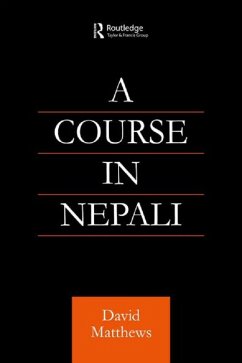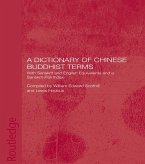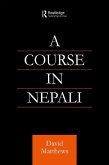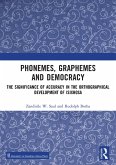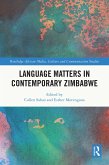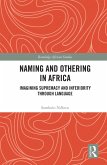David Matthews
Course in Nepali (eBook, PDF)
51,95 €
51,95 €
inkl. MwSt.
Sofort per Download lieferbar

26 °P sammeln
51,95 €
Als Download kaufen

51,95 €
inkl. MwSt.
Sofort per Download lieferbar

26 °P sammeln
Jetzt verschenken
Alle Infos zum eBook verschenken
51,95 €
inkl. MwSt.
Sofort per Download lieferbar
Alle Infos zum eBook verschenken

26 °P sammeln
David Matthews
Course in Nepali (eBook, PDF)
- Format: PDF
- Merkliste
- Auf die Merkliste
- Bewerten Bewerten
- Teilen
- Produkt teilen
- Produkterinnerung
- Produkterinnerung

Bitte loggen Sie sich zunächst in Ihr Kundenkonto ein oder registrieren Sie sich bei
bücher.de, um das eBook-Abo tolino select nutzen zu können.
Hier können Sie sich einloggen
Hier können Sie sich einloggen
Sie sind bereits eingeloggt. Klicken Sie auf 2. tolino select Abo, um fortzufahren.

Bitte loggen Sie sich zunächst in Ihr Kundenkonto ein oder registrieren Sie sich bei bücher.de, um das eBook-Abo tolino select nutzen zu können.
This course, covering the full grammar and all contructions of modern Nepali, presents a full description of written and spoken Nepali, enabling students to understand, speak and read most types of Nepali encountered today.
- Geräte: PC
- mit Kopierschutz
- eBook Hilfe
- Größe: 4.58MB
Andere Kunden interessierten sich auch für
![A Dictionary of Chinese Buddhist Terms (eBook, PDF) A Dictionary of Chinese Buddhist Terms (eBook, PDF)]() Lewis HodousA Dictionary of Chinese Buddhist Terms (eBook, PDF)78,95 €
Lewis HodousA Dictionary of Chinese Buddhist Terms (eBook, PDF)78,95 €![Course in Nepali (eBook, ePUB) Course in Nepali (eBook, ePUB)]() David MatthewsCourse in Nepali (eBook, ePUB)51,95 €
David MatthewsCourse in Nepali (eBook, ePUB)51,95 €![Phonemes, Graphemes and Democracy (eBook, PDF) Phonemes, Graphemes and Democracy (eBook, PDF)]() Zandisile W. SaulPhonemes, Graphemes and Democracy (eBook, PDF)42,95 €
Zandisile W. SaulPhonemes, Graphemes and Democracy (eBook, PDF)42,95 €![Language Matters in Contemporary Zimbabwe (eBook, PDF) Language Matters in Contemporary Zimbabwe (eBook, PDF)]() Language Matters in Contemporary Zimbabwe (eBook, PDF)42,95 €
Language Matters in Contemporary Zimbabwe (eBook, PDF)42,95 €![Routledge Handbook of Francophone Africa (eBook, PDF) Routledge Handbook of Francophone Africa (eBook, PDF)]() Routledge Handbook of Francophone Africa (eBook, PDF)46,95 €
Routledge Handbook of Francophone Africa (eBook, PDF)46,95 €![Naming and Othering in Africa (eBook, PDF) Naming and Othering in Africa (eBook, PDF)]() Sambulo NdlovuNaming and Othering in Africa (eBook, PDF)44,95 €
Sambulo NdlovuNaming and Othering in Africa (eBook, PDF)44,95 €![Marketing Communication in African Languages (eBook, PDF) Marketing Communication in African Languages (eBook, PDF)]() Marketing Communication in African Languages (eBook, PDF)42,95 €
Marketing Communication in African Languages (eBook, PDF)42,95 €-
-
-
This course, covering the full grammar and all contructions of modern Nepali, presents a full description of written and spoken Nepali, enabling students to understand, speak and read most types of Nepali encountered today.
Dieser Download kann aus rechtlichen Gründen nur mit Rechnungsadresse in A, B, BG, CY, CZ, D, DK, EW, E, FIN, F, GR, HR, H, IRL, I, LT, L, LR, M, NL, PL, P, R, S, SLO, SK ausgeliefert werden.
Produktdetails
- Produktdetails
- Verlag: Taylor & Francis eBooks
- Seitenzahl: 356
- Erscheinungstermin: 11. Januar 2013
- Englisch
- ISBN-13: 9781136111624
- Artikelnr.: 45131748
- Verlag: Taylor & Francis eBooks
- Seitenzahl: 356
- Erscheinungstermin: 11. Januar 2013
- Englisch
- ISBN-13: 9781136111624
- Artikelnr.: 45131748
- Herstellerkennzeichnung Die Herstellerinformationen sind derzeit nicht verfügbar.
David Matthews
Preface, Abbreviations, Pronunciation and script, Lesson 1: nouns
adjectives
cha, ho
possessives
postpositions., Lesson 2: plural forms
plural and negative verbs
questions
greetings
ko, ke
the postposition -ko
polite expressions
-b?ta, -dekhi., Lesson 3: personal pronouns
the verb 'to be'
feminine forms
comparison of adjectives
the particles po, ni, h?y, ta
koh?, keh?., Lesson 4: more postpositions
the oblique case
expressions of time
numeral classifiers
'to have', rahecha., Lesson 5: verb bases
Simple Indefinite
emphatic forms
Present Continuous. , Lesson 6: negative verbs
the direct object
-Ie
kahile
kat?y
honcha., Lesson 7: fractions
more expressions of time
-tira
-c?h?
ko, koko
compound postpositions
jasto
arko, ar?
the Imperative
re., Lesson 8: Secondary Verbal Base
Simple Past
thiyo
bhayo
days of the week. Lesson 9: I-Stem verbs, open conditions, expressions of price, weight and measure
other forms of the Imperative., Lesson 10: Conjunctive Participles
reported speech
l?gno
parno
expressions of age., Lesson 11: necessity: 'must', 'have to'
?phno
the Second Infinitive., Lesson 12: First Perfect Participle
more uses of the Second Infinitive
sakesamma., Lesson 13: First Perfect Tense
First Perfect Participle with ta and tara
First Pluperfect Tense
more uses of the Second Infinitive., Lesson 14: Infinitival Participle
bbanne
the Nepali calendar., Lesson 15: Infinitival Participle (cont.)
Infinitival Future
Third Infinitive., Lesson 16: Second Perfect Participle
conditional and concessive clauses
pronominal adjectives and adverbs
Second Perfect Tense
Second Pluperfect Tense., Lesson 17: The Injunctive
Future Tense
hol?., Lesson 18: Past Habitual
impossible conditions
causative verbs., Lesson 19: Imperfect Participle
continuous tenses
literary forms of verbs., Lesson 20: Absolutive Participle
frequentative and continuous tenses
compound verbs
'royal honorific'
-jeI., Appendix 1 The Nepali numerals., Appendix 2 Geographical terms., Appendix 3 Nepali relationship terms., Key to Exercises., Nepali-English Vocabulary.
adjectives
cha, ho
possessives
postpositions., Lesson 2: plural forms
plural and negative verbs
questions
greetings
ko, ke
the postposition -ko
polite expressions
-b?ta, -dekhi., Lesson 3: personal pronouns
the verb 'to be'
feminine forms
comparison of adjectives
the particles po, ni, h?y, ta
koh?, keh?., Lesson 4: more postpositions
the oblique case
expressions of time
numeral classifiers
'to have', rahecha., Lesson 5: verb bases
Simple Indefinite
emphatic forms
Present Continuous. , Lesson 6: negative verbs
the direct object
-Ie
kahile
kat?y
honcha., Lesson 7: fractions
more expressions of time
-tira
-c?h?
ko, koko
compound postpositions
jasto
arko, ar?
the Imperative
re., Lesson 8: Secondary Verbal Base
Simple Past
thiyo
bhayo
days of the week. Lesson 9: I-Stem verbs, open conditions, expressions of price, weight and measure
other forms of the Imperative., Lesson 10: Conjunctive Participles
reported speech
l?gno
parno
expressions of age., Lesson 11: necessity: 'must', 'have to'
?phno
the Second Infinitive., Lesson 12: First Perfect Participle
more uses of the Second Infinitive
sakesamma., Lesson 13: First Perfect Tense
First Perfect Participle with ta and tara
First Pluperfect Tense
more uses of the Second Infinitive., Lesson 14: Infinitival Participle
bbanne
the Nepali calendar., Lesson 15: Infinitival Participle (cont.)
Infinitival Future
Third Infinitive., Lesson 16: Second Perfect Participle
conditional and concessive clauses
pronominal adjectives and adverbs
Second Perfect Tense
Second Pluperfect Tense., Lesson 17: The Injunctive
Future Tense
hol?., Lesson 18: Past Habitual
impossible conditions
causative verbs., Lesson 19: Imperfect Participle
continuous tenses
literary forms of verbs., Lesson 20: Absolutive Participle
frequentative and continuous tenses
compound verbs
'royal honorific'
-jeI., Appendix 1 The Nepali numerals., Appendix 2 Geographical terms., Appendix 3 Nepali relationship terms., Key to Exercises., Nepali-English Vocabulary.
Preface, Abbreviations, Pronunciation and script, Lesson 1: nouns
adjectives
cha, ho
possessives
postpositions., Lesson 2: plural forms
plural and negative verbs
questions
greetings
ko, ke
the postposition -ko
polite expressions
-b?ta, -dekhi., Lesson 3: personal pronouns
the verb 'to be'
feminine forms
comparison of adjectives
the particles po, ni, h?y, ta
koh?, keh?., Lesson 4: more postpositions
the oblique case
expressions of time
numeral classifiers
'to have', rahecha., Lesson 5: verb bases
Simple Indefinite
emphatic forms
Present Continuous. , Lesson 6: negative verbs
the direct object
-Ie
kahile
kat?y
honcha., Lesson 7: fractions
more expressions of time
-tira
-c?h?
ko, koko
compound postpositions
jasto
arko, ar?
the Imperative
re., Lesson 8: Secondary Verbal Base
Simple Past
thiyo
bhayo
days of the week. Lesson 9: I-Stem verbs, open conditions, expressions of price, weight and measure
other forms of the Imperative., Lesson 10: Conjunctive Participles
reported speech
l?gno
parno
expressions of age., Lesson 11: necessity: 'must', 'have to'
?phno
the Second Infinitive., Lesson 12: First Perfect Participle
more uses of the Second Infinitive
sakesamma., Lesson 13: First Perfect Tense
First Perfect Participle with ta and tara
First Pluperfect Tense
more uses of the Second Infinitive., Lesson 14: Infinitival Participle
bbanne
the Nepali calendar., Lesson 15: Infinitival Participle (cont.)
Infinitival Future
Third Infinitive., Lesson 16: Second Perfect Participle
conditional and concessive clauses
pronominal adjectives and adverbs
Second Perfect Tense
Second Pluperfect Tense., Lesson 17: The Injunctive
Future Tense
hol?., Lesson 18: Past Habitual
impossible conditions
causative verbs., Lesson 19: Imperfect Participle
continuous tenses
literary forms of verbs., Lesson 20: Absolutive Participle
frequentative and continuous tenses
compound verbs
'royal honorific'
-jeI., Appendix 1 The Nepali numerals., Appendix 2 Geographical terms., Appendix 3 Nepali relationship terms., Key to Exercises., Nepali-English Vocabulary.
adjectives
cha, ho
possessives
postpositions., Lesson 2: plural forms
plural and negative verbs
questions
greetings
ko, ke
the postposition -ko
polite expressions
-b?ta, -dekhi., Lesson 3: personal pronouns
the verb 'to be'
feminine forms
comparison of adjectives
the particles po, ni, h?y, ta
koh?, keh?., Lesson 4: more postpositions
the oblique case
expressions of time
numeral classifiers
'to have', rahecha., Lesson 5: verb bases
Simple Indefinite
emphatic forms
Present Continuous. , Lesson 6: negative verbs
the direct object
-Ie
kahile
kat?y
honcha., Lesson 7: fractions
more expressions of time
-tira
-c?h?
ko, koko
compound postpositions
jasto
arko, ar?
the Imperative
re., Lesson 8: Secondary Verbal Base
Simple Past
thiyo
bhayo
days of the week. Lesson 9: I-Stem verbs, open conditions, expressions of price, weight and measure
other forms of the Imperative., Lesson 10: Conjunctive Participles
reported speech
l?gno
parno
expressions of age., Lesson 11: necessity: 'must', 'have to'
?phno
the Second Infinitive., Lesson 12: First Perfect Participle
more uses of the Second Infinitive
sakesamma., Lesson 13: First Perfect Tense
First Perfect Participle with ta and tara
First Pluperfect Tense
more uses of the Second Infinitive., Lesson 14: Infinitival Participle
bbanne
the Nepali calendar., Lesson 15: Infinitival Participle (cont.)
Infinitival Future
Third Infinitive., Lesson 16: Second Perfect Participle
conditional and concessive clauses
pronominal adjectives and adverbs
Second Perfect Tense
Second Pluperfect Tense., Lesson 17: The Injunctive
Future Tense
hol?., Lesson 18: Past Habitual
impossible conditions
causative verbs., Lesson 19: Imperfect Participle
continuous tenses
literary forms of verbs., Lesson 20: Absolutive Participle
frequentative and continuous tenses
compound verbs
'royal honorific'
-jeI., Appendix 1 The Nepali numerals., Appendix 2 Geographical terms., Appendix 3 Nepali relationship terms., Key to Exercises., Nepali-English Vocabulary.
